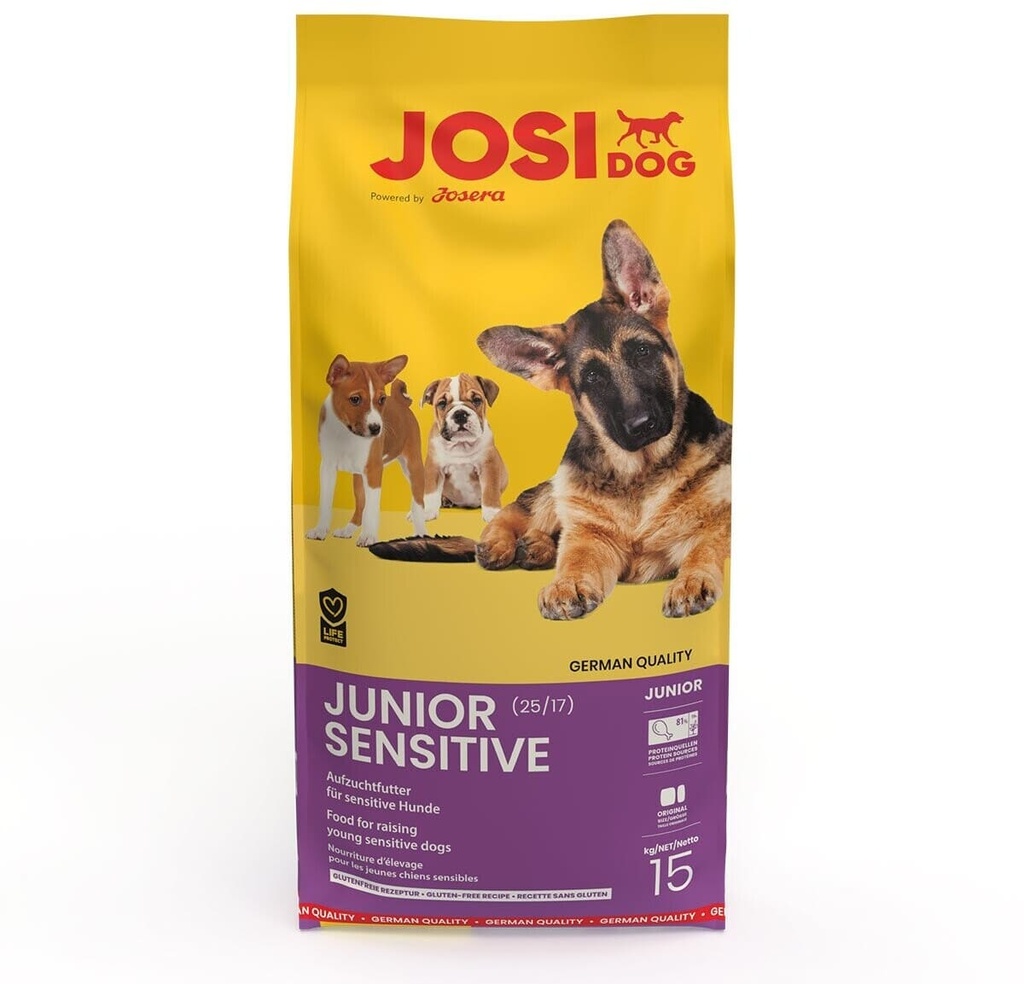Age (months) | Age (months) | Age (months) | Age (months) | Age (months) | Age (months) | Age (months) |
Weight of the dog | 2 | 3 | 4 | 5 - 6 | 7 - 12 | 13 - 20 |
5 kg | 40 - 60 g | 60 - 80 g | 90 - 100 g | 110 - 120 g | - | - |
10 kg | 90 - 120 g | 140 - 160 g | 170 - 180 g | 165 - 190 g | - | - |
20 kg | 140 - 170 g | 240 - 295 g | 310 - 375 g | 320 - 390 g | 300 - 360 g | - |
30 kg | 190 - 230 g | 290 - 350 g | 370 - 450 g | 410 - 480 g | 390- 450 g | - |
40 kg | 255 - 310 g | 400 - 440 g | 410 - 530 g | 490 - 560 g | 480 - 540 g | - |
60 kg | 290 - 355 g | 490 - 560 g | 580 - 720 g | 700 - 850 g | 780 - 880 g | 700 - 790 g |
80 kg | 400 - 475 g | 550 -650 g | 690 - 800 g | 830 - 940 g | 910 - 1000 g | 790 - 890 g |
The quantities given are based on the weight of the adult dog.
Please note that the quantities given are only guidelines and must be adapted to your dog's nutritional status. Growing dogs should be fed a moderate amount of energy to optimise their growth rate.
If your dog is too big and too heavy for its age, it is advisable to reduce the amount of food. An adequate supply of nutrients is ensured even with smaller ration sizes. The recommended amount of food is per animal per day.

![]() and then Add to Home Screen.
and then Add to Home Screen.

